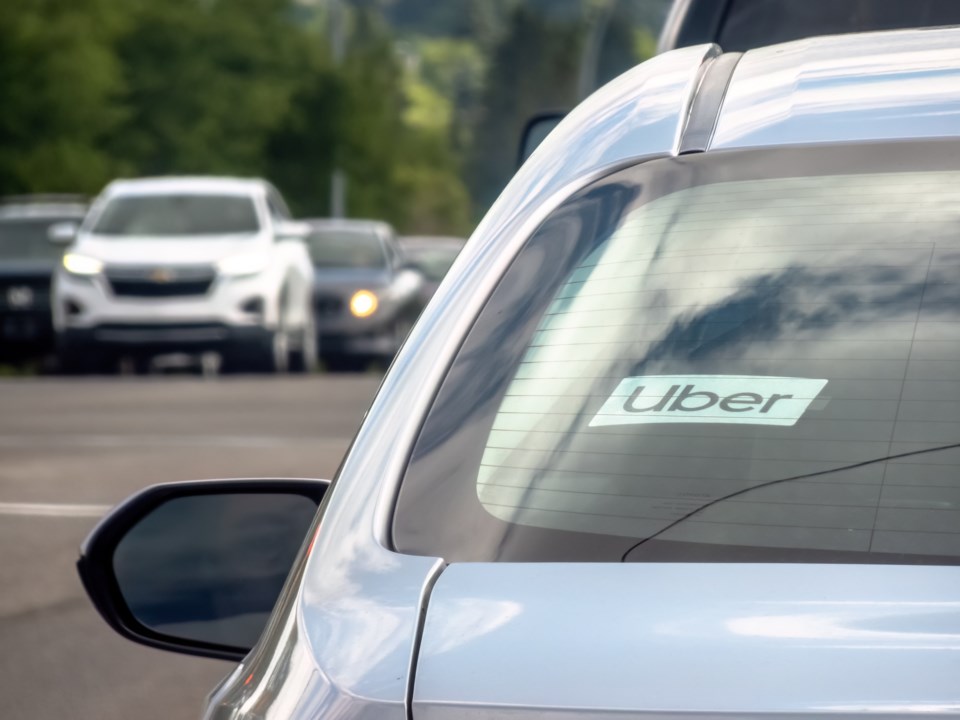Uber Canada Inc. has successfully challenged a City of Vancouver bylaw that requires ride-share companies to pay for a “congestion and curbside management” permit to pick up or drop off passengers in the metro core of the city between 7 a.m. and 10 p.m.
The bylaw had allowed the city to charge a set fee for the permit, with the fee levied per stop within the metro core during the designated times. Since December 2023, that fee has been 25 cents for zero-emission vehicles, and 50 cents for all other vehicles.
The bylaw was intended to reduce reliance on vehicle transportation, and to regulate the ability of ride-share or “transportation network services” vehicles to operate in the downtown core.
That is where the city expected demand for ride-share operators to be highest.
In a B.C. Supreme Court decision released Monday, Justice Andrea Ormiston ruled the bylaw was “invalid and the decision to adopt it was unreasonable.” Ormiston pointed out ride-share companies are currently authorized to operate by the Passenger Transportation Board.
The judge said that while it is theoretically possible for the city to have decided it could regulate some places where ride-share vehicles stop without regulating the number of vehicles operating under a provincial authorization, that is not what was done in this particular bylaw.
“By restricting the operating area of [ride-share] vehicles and prohibiting essential functions of [ride-share] vehicles across the entire metro Vancouver core for 15 high-demand hours in any 24-hour period, there is no reasonable way the city could decide it was not regulating the number of [ride-share] vehicles operating in the city,” Ormiston said.
“In fact, there is compelling evidence that this was precisely what the city set out to do. The resulting bylaw imposes significant limitations on the unfettered supply allowed by the provincial board, with the option for [ride-share] providers to pay to increase it.”
Passenger Transportation Act
In 2019, the provincial government made amendments to the Passenger Transportation Act and other statutes granting the board the power to issue the licences and authorizations required to operate ride-share vehicles.
The government also made amendments to the Vancouver Charter, which restricted the city’s power to regulate the number of vehicles that can operate under a ride-share authorization.
The amendments restrained the city from prohibiting ride-share vehicles from operating in the municipality. The government also removed the city’s power to fix rates charged by vehicles operated under ride-share authorizations.
'To address traffic congestion'
The city’s lawyers argued the bylaw was fully within the statutory authority granted to the city. They pointed to different bylaws that allow the city to issue permits, and that allow the city to regulate when and where vehicles, or classes of vehicles, can stop on city streets.
The city, or “respondent,” acknowledged that the Charter now prohibits the city from regulating the rates ride-share providers charge, and the number of ride-share vehicles operating under authorizations in Vancouver.
“However, the city says it reasonably decided that [the bylaw] does none of these prohibited things,” the ruling said. “The respondent points to the fact that the fees for permits under [the bylaw] are charged to [ride-share] providers, and therefore do not prescribe or impose ‘rates’ charged to [ride-share] customers.”
The city also argued the bylaw does not limit or restrict the number of ride-share licences, nor does it specify the number of vehicles that can operate under a ride-share authorization.
“The respondent says that it was reasonable for the city to find that the bylaw falls within the city’s ability to issue permits and control traffic on city streets in order to address traffic congestion,” the ruling said.
Uber Canada argued the permit fee and area restriction set out in the bylaw operate together to create “a toll” on the use of metro Vancouver streets for ride-share vehicles.
In an emailed statement Monday, the city said: “The City of Vancouver respects the judicial process and acknowledges the B.C. Supreme Court’s decision. The city will take the time necessary to carefully consider next steps.”





